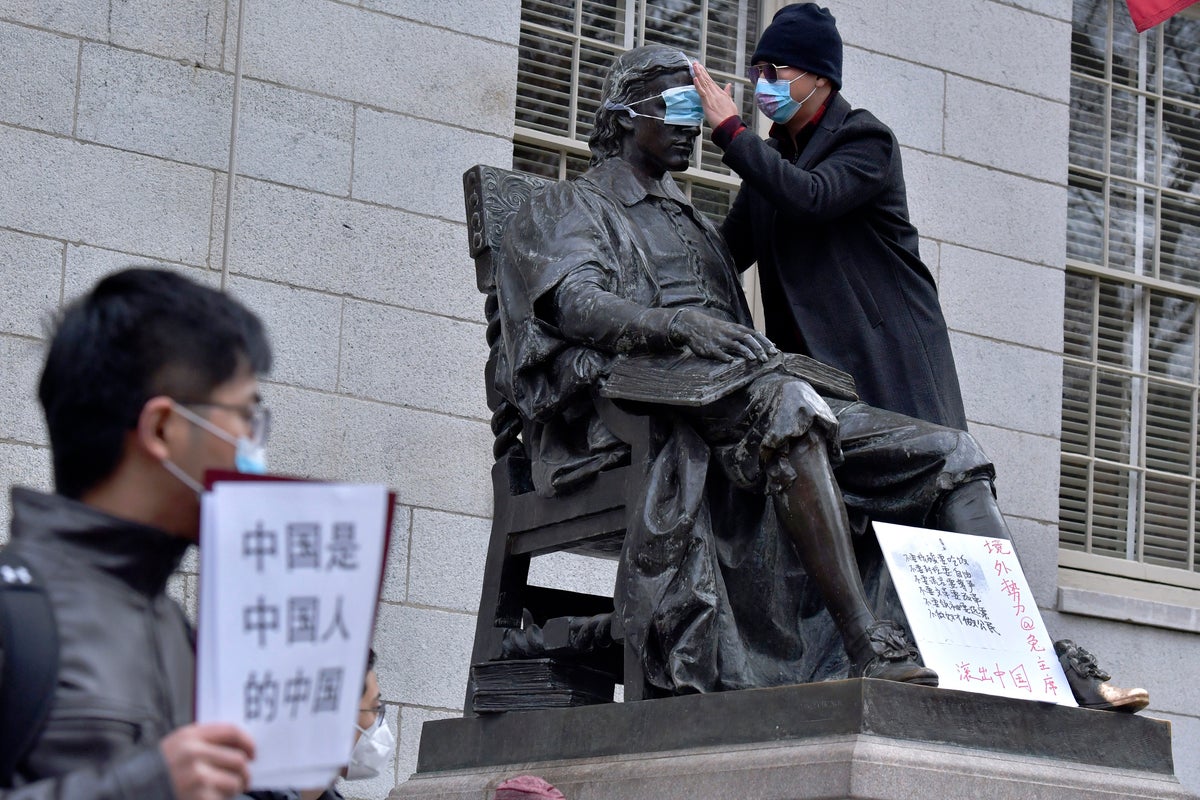
Dozens of people gathered Tuesday at Harvard University to support Chinese protesters who have called for the country's leader to step down amid severe anti-virus restrictions in the biggest demonstrations against the government in Beijing in decades.
About 50 protesters, mostly students at the elite Ivy League school, sang songs in both Chinese and English and chanted slogans in both languages, including, “We are not slaves, we are citizens!” “We don’t want dictatorships, we want elections!” and “Step down, Xi Jinping,” a reference to China’s president.
Many who had gathered at the statue of university namesake John Harvard wore masks — not because of COVID-19 but concerned that if they are recognized by Chinese authorities, their families back home would face repercussions.
Relatives could face harassment or even lose a job, said Wayne, a Harvard graduate student from China participating in the demonstration who did not want his full name used out of concern for relatives at home.
Chinese authorities' restrictive “ zero-COVID ” strategy has led to demonstrations in at least eight mainland cities and Hong Kong. They have been called the most widespread protests since the 1989 student-led Tiananmen Square pro-democracy movement.
Some Chinese universities have sent students home and police fanned out in Beijing and Shanghai to prevent more protests Tuesday. Security forces detained an unknown number of people and stepped up surveillance.
In addition to the masks, many of the Harvard demonstrators held blank pieces of white paper in front of their faces, wore dark glasses or shielded their faces under hoods and hats. The blank paper has become a symbol of defiance of government censorship by Chinese protesters.
“We want to let them know that we are aware and we hear their voices,” said Wayne, the graduate student.
A similar protest was held at Columbia University on Monday, and demonstrations supporting the Chinese people have either been held or are planned at other U.S. universities in the coming days.
The protesters also laid flowers at the base of the statue — a famous spot in Harvard Yard usually surrounded by tourists — to honor the 10 people killed in a fire in northwestern China last week, deaths that some blamed on the strict anti-virus controls.
Brabeeba Wang, a former Harvard student who is now studying neuroscience at the nearby Massachusetts Institute of Technology, went unmasked and played his violin to accompany the singing.
“It's great to see people fight for their freedom and fight for their freedom of speech,” said Wang, originally from Taiwan.
He called the protesters in China “courageous” for standing up to the government.







